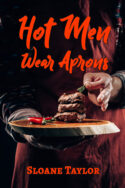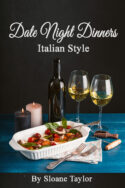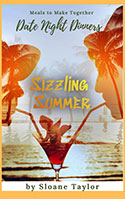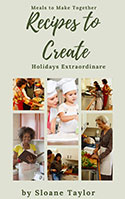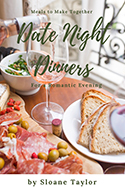Emphasize Your Written Words
April 27, 2012 | It's All About Writing
“The Elements of Style” written by Wm. Strunk Jr. and E.B. White is a must for any writer. I don’t get royalties on it, but without it I won’t get royalties. I strongly suggest you buy a copy.
We all know a period is the mark at the end of a declarative sentence or an abbreviation and a question mark is used at the end of a sentence to indicate a direct question or inquiry.
But there are other punctuation marks which may be a bit confusing. Today we’ll try to clear it up.
The common usage of QUOTATION MARKS is in dialogue;
“Martin can you swim to the other side?” asked Leslie.
If the quotation is the direct object of a verb it’s preceded by a comma and enclosed in quotations marks;
“Mark Twain said, “A classic is something that everyone wants to have read and nobody wants to read.”
The EXCLAMATION POINT is a punctuation used after an interjection or exclamation. Be sure to use it sparingly in your writing. It’s very jarring to see a multitude of ! on a page.
Not too long ago I had to review a category romance by an established author. The story was excellent, but the exclamation points drove me crazy. Every page in the first chapter had a minimum of fifteen irritating !. I was not a happy reader. Over-usage of exclamation points loses their effect and really piss off a reviewer, let alone a reader.
APOSTROPHES show possession no matter what the final consonant;
Claus’s problem
Benny’s bicycle
Hers, its, theirs, yours, and ours do not need an apostrophe. But you do need the punctuation for;
somebody else’s dish
one’s livelihood
Be careful when writing its the possessive or it’s the contraction;
Its author is well-known.
It’s the hottest new book on the shelf.
PARENTHESES are used around a word, phrase, or sentence inserted in a passage to explain or modify a thought. The following examples are taken from my bible “The Elements of Style”;
I went to her house yesterday (my third attempt to see her), but she had left town.
He declares (and why should we doubt his good faith?) that he is now certain of success.
In my writing I avoid all use of parentheses for two reasons.
• I don’t like the look of the completed sentence.
• I don’t really understand why a comma wouldn’t be used in example one.
To work around my dilemma, I rewrite the sentences to work with the punctuations I know and love.
A DASH is a stronger punctuation mark than the comma and should also be used with discretion. It does give your reader a longer pause to gather their thoughts before you impart a pertinent phrase.
Again, from “The Elements of Style”;
Violence – the kind you see on television – is not honestly violent – there in lies its harm.
Using commas or writing as separate sentences doesn’t give the same dramatic effect as the dash. You must use it sparingly or the effect is lost.
Webster’s definition of the SEMICOLON was about as good as the horrid chop suey I made for dinner last Saturday. So it was back to “The Elements of Style” for a clearer understanding;
If two or more clauses grammatically complete, and not joined by a conjunction, are to form a single compound sentence, the proper mark of punctuation is a semicolon.
Mary Shelley’s works are entertaining; they are full of engaging ideas.
It is nearly half past five; we cannot reach town before dark.
Both examples could be written as two separate sentences.
You can also use a comma in place of a semicolon if a conjunction is used;
Mary Shelley’s works are entertaining, for they are full of engaging ideas.
It is nearly half past five, and we cannot reach town before dark.
Romance writing is mood type writing. We are creating a world of love and beauty as it pertains to our hero and heroine. Therefore semicolons seem stark and/or jarring on the page.
Next up is the COLON. Sorry not the organ, which I understand much better. This colon thing is another form of punctuation I avoid as much as a drunk at a bar.
According to “The Elements of Style”;
A colon tells the reader that what follows is closely related to the preceding clause. The colon has more effect than the comma, less power to separate than the semicolon, and more formality than the dash. It usually follows an independent clause and should not separate a verb from its complement or a preposition from its object.
Incorrect
Your dedicated whittler requires: a knife, a piece of wood, and a back porch.
Correct
Your dedicated whittler requires three props: a knife, a piece of wood, and a back porch.
For me a colon means rewrite.
The last punctuation mark is the COMMA. In my humble opinion this much used symbol deserves its own lecture. Another day we’ll uncover the mystery; To comma, or not to comma, that is the question.
Have a wonderful weekend. I’ll be back Monday with thigh squeezing author Raine Delight. Until then…
Happy writing!
Sloane Taylor
www.sloanetaylor.com
